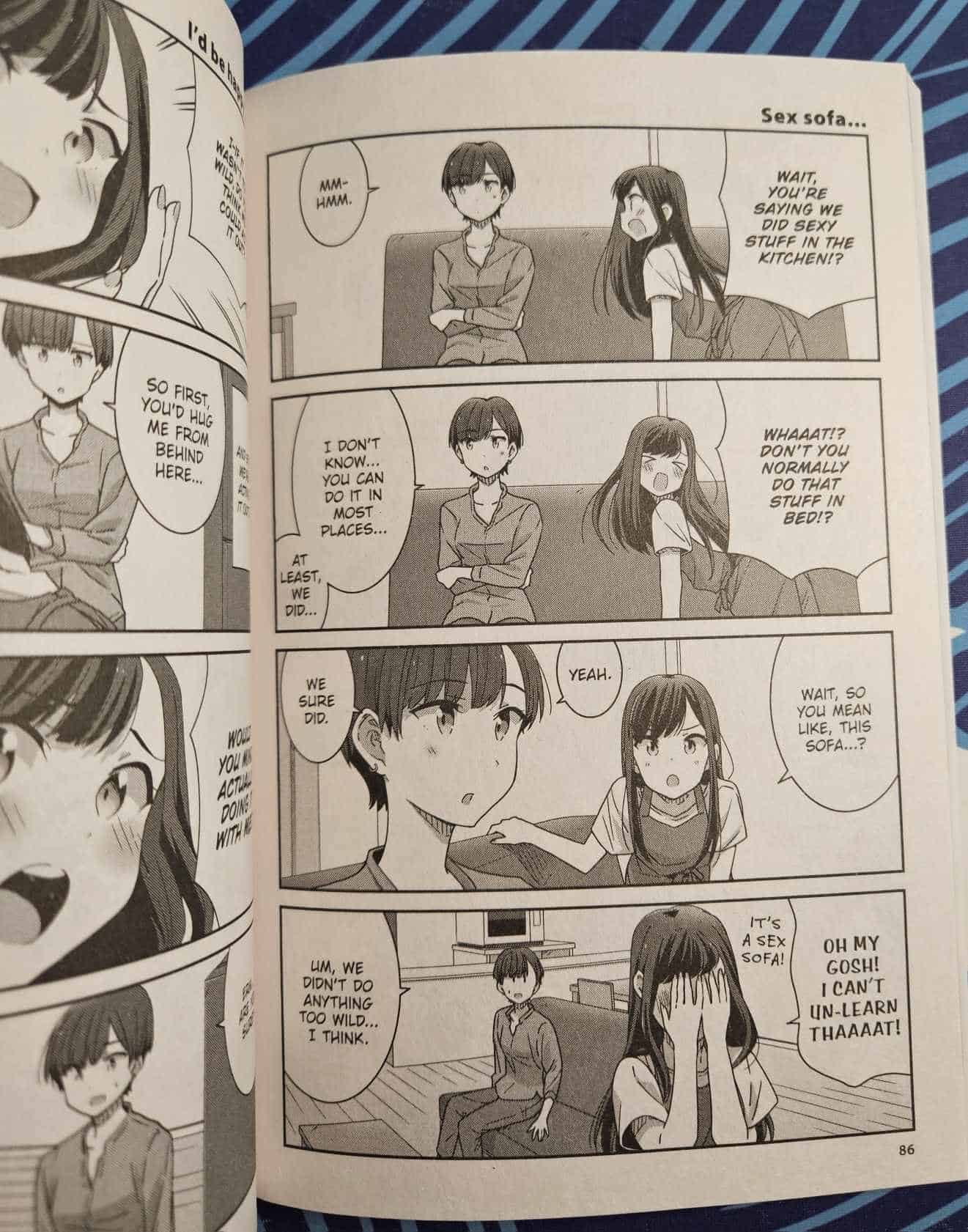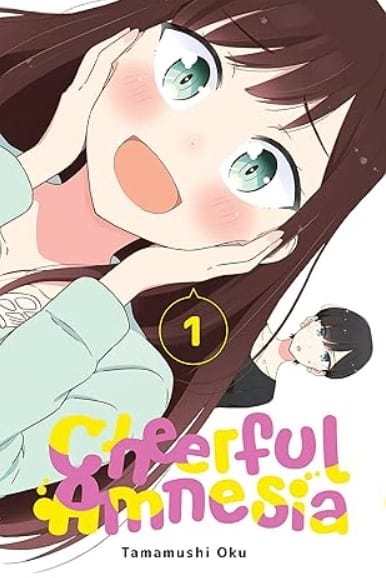“When Arisa loses her memories from the past three years, her girlfriend, Mari, worries it might mean the end of their budding relationship. A needless concern, it turns out, because when Arisa lays eyes on her, she falls in love all over again! Arisa's not about to let a little severe brain damage get her down, because she has a chance to relive all their firsts for a second time—from dates, to kisses, and even beyond…!!” (Yen Press)
Tamamushi Oku presents an innocent and charming story of re-ignited love as one girl returns home to her partner after suffering from amnesia. Wonderfully optimistic and idealistic in what, otherwise, is a traumatic event, the series looks at recapturing intimacy between two different personalities.
The titular cheerful amnesiac, Arisa, is undeniably the primary draw of the series. She is an overly expressive and excited character who trips over little tidbits of info as she learns about past intimacies. In addition, Arisa's admiration/excitement for her partner makes for a playful dynamic between the two that keeps the series entertaining and endearing. Comparatively, Mari is more reserved, but her gestures towards Arisa and her willingness to help her rediscover her past life are admirable. Mari may not be the focus, but her welcoming presence is vital to making the drama and comedy of the series succeed.
Check also this video
The book's format helps to keep the subject matter light and entertaining by having each page be a mini-story highlighting moments between the couple, as Arisa begins to gain her memory. There is still a progressive story, but Tamamushi Oku understands how to interweave that with the punchy comic-strip-like format to offer readers the best of both. However, the quick comedic wit of Oku certainly takes precedence over the continued story when assessing what makes the series enjoyable.
The manga's structure establishes “Cheerful Amnesia” as a lighter read with a surface-level exploration of the characters to prioritize comedy. For those wanting a brief but entertaining escapism, the manga is an ideal fit. However, this format won't appeal to those who wish for a more profound GL series. At the same time, the maturity of the characters has its appeal in a genre crowded with reflections of youth. Still, the structure of Tamamushi Oku's work may deter yuri fans who want drama first and comedy second.

The art in “Cheerful Amnesia” is a bit of a mixed bag. Tamamushi Oku draws wonderfully expressive characters–Arisa is consistently charming– and the comedic timing is impeccable. However, the overall aesthetic feels simplistic in execution. This works well in the layout of the series, but there is still a want for those ‘swoon-worthy' panels that punctuate the couple's feelings for one another.
“Cheerful Amnesia” is a series to pick up, casually enjoy, get a few laughs, and then put down to revisit at a later time–it is a perfect comfort read. At the same time, it is far from being exemplary of the genre's best, but its playful approach and punchy humor make it worth collecting.
















